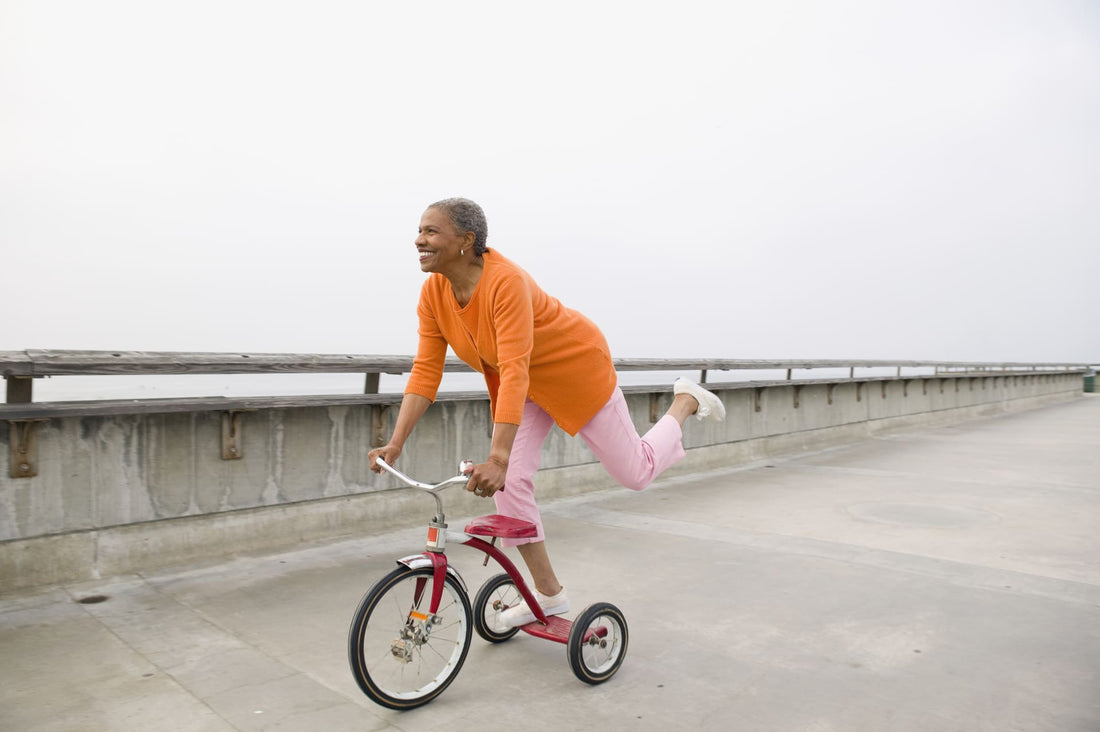Six secret causes of low energy
Vincent Carrié
Do you feel without the strength to get up and get going? Find out what could be triggering your low energy problems. We all get tired sometimes, but what if you can't get rid of that feeling of not having enough energy to get through the day, even after a good night's sleep? According to the Royal College of Psychiatrists, one in five people spend the day feeling unusually tired and one in 10 have low long-term energy. If you're always tired or feel exhausted, several things may be triggering your lack of energy, but some may surprise you...
- Eat too much sugar
Eating a diet rich in simple carbohydrates, such as cakes and cookies, can cause feelings of lack of energy and fatigue. This is because refined starches and sugars cause spikes in blood glucose levels, and as they plummet, fatigue is experienced. 2, 3 A 2015 study published in the journal Obesity found that teenagers who ate a high-sugar, low-fiber breakfast experienced fluctuating blood glucose levels, giving them less energy; Later they were more likely to reject the sport in favor of sitting. activity drops.
- Not consuming enough vital vitamins
Certain vitamins and minerals are important when it comes to getting the most energy out of the foods we eat. Magnesium and phosphorus (found in tofu, beans, and whole grains) are two of the nutrients that help break down our food into fuel. 5, 6, 7 Meanwhile, iron is essential for making hemoglobin, which carries oxygen throughout the body to cells: our cells need oxygen to break down glucose into energy. Iron deficiency also causes anemia, which makes one feel extremely tired. 8, 9, Iron is found in dark green leafy vegetables, egg yolks, and sesame seeds.
- Portion distortion: eating large meals
If you suffer from lack of energy, avoid eating three large meals a day with long intervals between them. Health experts believe that our brain only has small energy reserves and needs a regular supply of nutrients to feel refreshed, so try eating a small meal every few hours. Be especially careful with heavy lunches. They cause a spike in blood sugar, and what goes up must come down...usually in the form of an afternoon energy crash.
- Overdo it with alcohol
Drinking during the day can make you drowsy and lethargic. And drinking before bed risks disrupting sleep: Alcohol increases levels of the stress hormone epinephrine, raising your heart rate and making you more likely to wake up in the middle of the night. In fact, drinking causes 10% of cases of persistent insomnia, something that can definitely reduce your energy levels. Try to reduce your consumption by alternating each alcoholic drink with a soft drink, or stop consuming alcohol for several days a week.
- Suffer from stress
A 2011 study, published in BMC Research Notes, found that people who experienced more stress reported higher levels of fatigue. That's because stress weakens the immune system, increases blood pressure and breathing rate, slows down the digestive system, and increases alertness, all of which can make getting a good night's sleep much more difficult. Take time to relax every day, even if it's just 15 minutes. This will help lower blood pressure and heart rate and calm the stress response. Try meditation, yoga, or deep breathing exercises.
- You have a medical condition
Certain conditions and illnesses can trigger feelings of low energy. These include:
- Chronic Fatigue Syndrome
- Fibromyalgia
- Depression
- Diabetes
- Underactive thyroid
- kidney infection
- Celiac Disease
- Anemia
If you are suffering from unexplained low energy levels, you should see your GP to see if you have any of these or other conditions.
Sources
- Royal College of Psychiatrists. Fatigue. Available at: https://www.rcpsych.ac.uk/healthadvice/problemsanddisorders/tiredness.aspx
- Kiecolt-Glaser JK. Stress, diet and inflammation: psychoneuroimmunology and nutrition at the forefront. Available at: https://www.ncbi.nlm.nih.gov/pmc/articles/PMC2868080/
- Harvard Health Publications. Eat to increase energy. Available at: https://www.health.harvard.edu/healthbeat/eating-to-boost-energy
- O'Reilly GA, et al. Effects of foods high in sugar and fiber on physical activity behaviors in Latino and African American adolescents. Available at: https://www.ncbi.nlm.nih.gov/pmc/articles/PMC4551584/
- Huskisson E, Maggini S and Ruf M. The role of vitamins and minerals in energy metabolism and well-being. Available at: http://journals.sagepub.com/doi/pdf/10.1177/147323000703500301
- Dietitians of Canada. Food sources of phosphorus. Available at: https://www.dietitians.ca/Your-Health/Nutrition-AZ/Minerals/Food-Sources-of-Phosphorus.aspx
- Dietitians of Canada. Food sources of magnesium. Available at: https://www.dietitians.ca/Your-Health/Nutrition-AZ/Minerals/Food-Sources-of-Magnesium.aspx
- BBC Bite Size. Life processes. Available at: http://www.bbc.co.uk/bitesize/ks3/science/organisms_behaviour_health/life_processes/revision/3/
- Medical news today. What to know about iron deficiency anemia. Available at: https://www.medicalnewstoday.com/articles/318096.php
- Dietitians of Canada. Food sources of iron. Available at: https://www.dietitians.ca/Your-Health/Nutrition-AZ/Minerals/Food-Sources-of-Iron.aspx
- Like Source 3
- Like Source 3
- Harvard Health Publications. Alcohol and fatigue. Available at: https://www.health.harvard.edu/mind-and-mood/alcohol-and-fatigue
- as above
- Drink consciously. Reasons to reduce alcohol consumption. Available at: https://www.drinkaware.co.uk/advice/how-to-reduce-your-drinking/how-to-cut-down/reasons-for-cutting-down-on-alcohol/
- Kocalevent RD, et al. Determinants of fatigue and stress. Available at: https://www.ncbi.nlm.nih.gov/pubmed/21774803
- GreenbergDB. Clinical dimensions of fatigue. Available at: https://www.ncbi.nlm.nih.gov/pmc/articles/PMC181235/
- Medical news today. Why stress occurs and how to manage it. Available at: https://www.medicalnewstoday.com/articles/145855.php
- Harvard Medical School. The best ways to manage stress. Available at: https://www.health.harvard.edu/mind-and-mood/best-ways-to-manage-stress
- as above
- Like Source 17
- NHS options. 10 medical reasons to feel tired. Available at: https://www.nhs.uk/live-well/sleep-and-tiredness/10-medical-reasons-for-feeling-tired/

